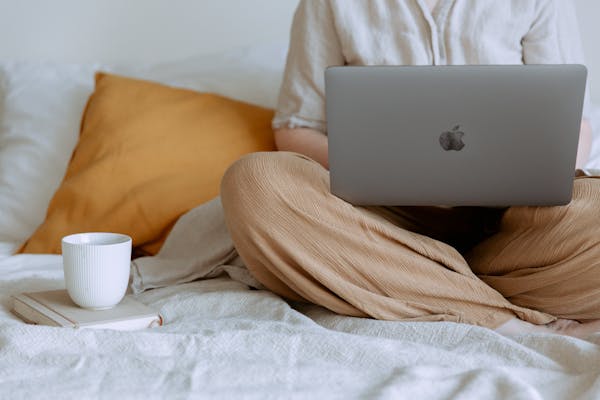Finding free time to use effectively depends on managing your schedule and priorities. Here are some tips to identify and make the most of your free time:
 |
| Find free time to use |
1. Evaluate Your Current Schedule
- Time Audit: Assess how you currently spend your time throughout the day. Identify activities that consume a significant portion of your schedule.
- Identify Time Blocks: Look for gaps in your schedule where you have free time or moments that could be used more productively.
2. Set Clear Priorities
- Define Goals: Determine what you want to achieve during your free time. Whether it's personal development, relaxation, hobbies, or social activities, prioritize what matters most to you.
- Time Management: Allocate specific time slots for different activities based on their importance and impact on your well-being.
3. Optimize Daily Routines
- Minimize Time Wasters: Reduce or eliminate activities that don't add value to your life or contribute to your goals.
- Batch Tasks: Group similar tasks together to maximize efficiency and create more free time throughout the day.
4. Create a Schedule
- Use a Planner: Organize your day using a planner or digital calendar. Schedule specific blocks of time for work, relaxation, exercise, hobbies, and socializing.
- Flexibility: Allow for some flexibility in your schedule to accommodate unexpected events or changes.
5. Prioritize Self-Care
- Rest and Relaxation: Ensure you include time for rest and relaxation. This helps rejuvenate your mind and body, improving overall productivity.
- Mindfulness: Practice mindfulness or meditation to manage stress and maintain mental well-being during free moments.
6. Develop Productive Habits
- Goal Setting: Set achievable goals for your free time activities. Break larger tasks into smaller, manageable steps to maintain motivation and track progress.
- Continuous Learning: Use spare moments for learning new skills or pursuing interests that can enhance your personal and professional growth.
7. Balance Social and Personal Time
- Social Activities: Plan social interactions with friends and family to maintain connections and support networks.
- Me-Time: Reserve time for yourself to relax, reflect, and recharge without external distractions.
8. Stay Consistent
- Routine: Establish a daily or weekly routine that incorporates your preferred activities during free time. Consistency helps in forming habits and maximizing productivity.
9. Review and Adjust
- Reflect Regularly: Periodically review how you use your free time and adjust your schedule as needed to ensure alignment with your goals and priorities.
- Feedback: Seek feedback from others or self-assess to understand what activities are most fulfilling and effective for you.
By following these strategies, you can effectively find and utilize free time to enhance your productivity, personal growth, and overall well-being. Tailor these tips to fit your lifestyle and preferences to achieve a balanced and fulfilling daily routine.
Effective Utilization of Leisure Time
Leisure time presents a valuable opportunity for individuals to engage in positive activities that enrich their lives and contribute positively to society. Here are several constructive ways to make the most of leisure time:
Engaging in Physical Exercise:
Physical activities such as running, walking, swimming, horseback riding, playing football, volleyball, and other sports not only promote physical fitness but also enhance mental well-being. Exercise is versatile and caters to various preferences and fitness levels.
Volunteering and Charity Work:
Joining charitable organizations or participating in community service initiatives, such as cleaning up streets, planting trees, or assisting in building mosques and educational centers, contributes significantly to society's well-being and environmental sustainability.
Reading and Intellectual Pursuits:
Reading broadens intellectual horizons, equipping individuals with knowledge that can help solve personal and societal challenges. It keeps individuals informed about advancements in fields such as medicine, technology, and astronomy, fostering personal growth and awareness.
Engaging in Religious Practices:
Devotional activities like prayer, Quran recitation, supplication, and seeking forgiveness nourish the soul and strengthen an individual's spiritual connection with God. This fosters positive behavior and ethical conduct within the community, promoting harmony and peace.
Watching Educational Programs and Documentaries:
Opting for educational and informative TV programs or documentaries that expand knowledge and promote critical thinking helps individuals stay informed while avoiding negative influences of less productive content.
Seeking Additional Income Opportunities:
Taking up additional work that offers financial returns can bolster personal finances and contribute to better meeting one's and family needs, thereby enhancing financial security and stability.
Joining Educational Clubs and Centers:
Enrolling in clubs and educational centers that offer courses or workshops on various subjects encourages continuous learning and personal development. Participating in recreational trips organized by such clubs promotes relaxation and rejuvenation.
Activities to Avoid in Leisure Time
To ensure leisure time remains productive and beneficial, it's important to steer clear of activities that waste time and may have negative impacts:
Excessive TV Watching and Unproductive Internet Surfing:
Spending prolonged periods watching meaningless TV shows or aimlessly browsing the internet can lead to time wastage and reduce productivity.
Playing Excessive Video Games:
Engaging excessively in video games can be mentally isolating and detrimental to social interactions, often promoting addictive behaviors and reducing time for more enriching activities.
Associating with Negative Influences:
Spending time with peers who engage in unethical or harmful activities and frequenting questionable places can influence behavior negatively, impacting personal well-being and reputation.
By consciously choosing to engage in constructive activities during leisure time and avoiding unproductive behaviors, individuals can enhance their personal development, contribute positively to society, and maintain a balanced and fulfilling lifestyle.

